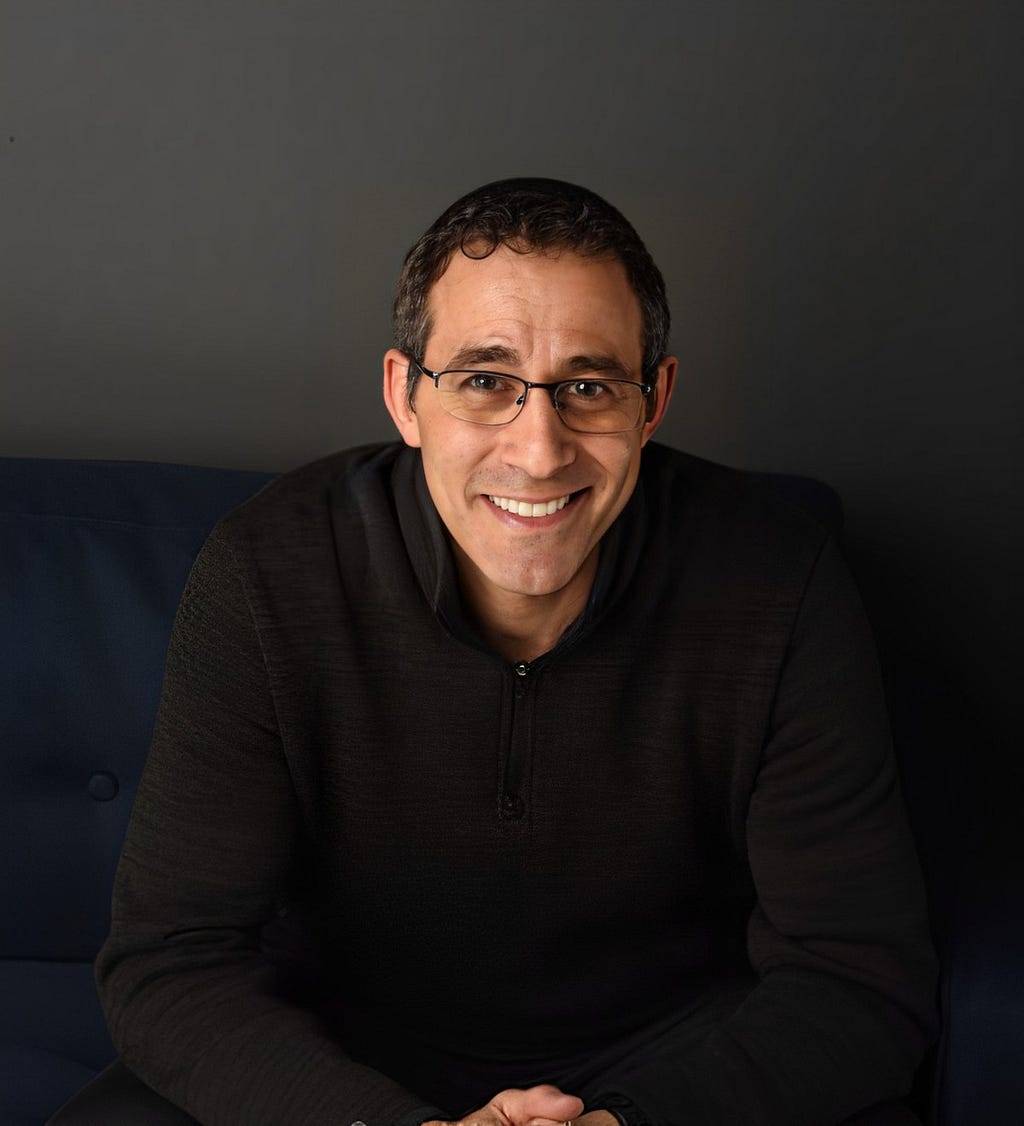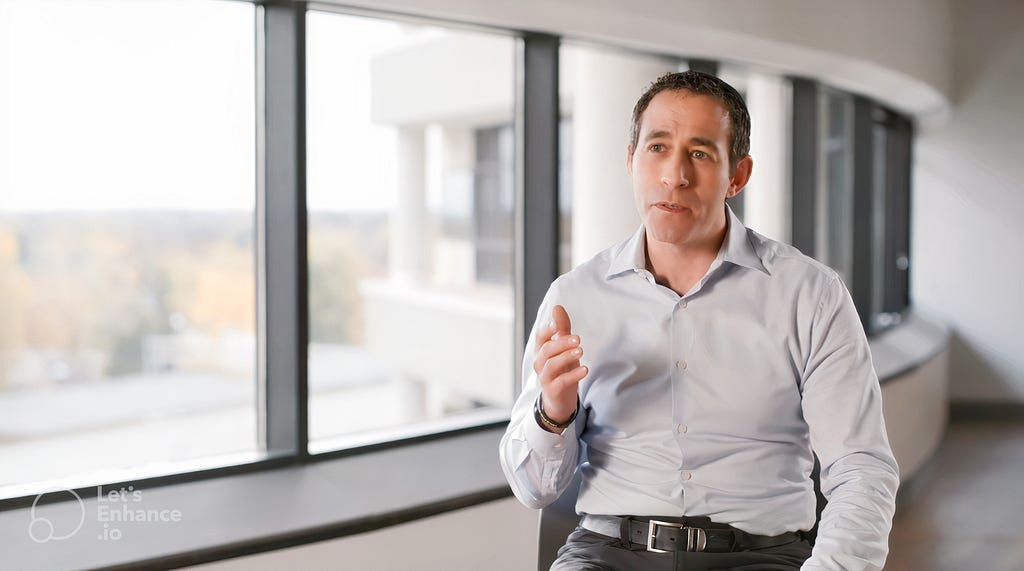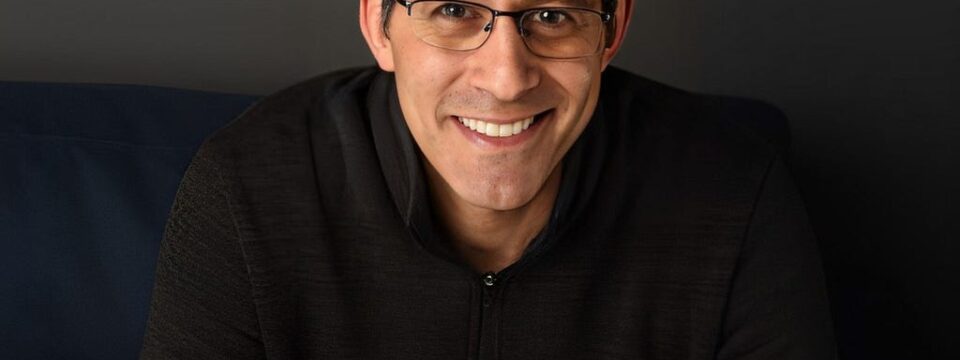
Young professionals today have an incredible advantage that previous generations never had — the ability to leverage cutting-edge AI technology that propels them light years ahead of others who may have more experience. The ability to start your own business and work remote with anyone in the world are also good reasons to be optimistic about the future.
Reading the news can be so demoralizing: climate change, war, fires, epidemics, rogue AI, mental health, authoritarianism, extreme partisanship. But humans need hope. In order for us to create a positive future, we need to be able to have hope that there can be a positive future. What is the “Case for Optimism” over the next decades? What can we look forward to and hope for to help us strive for a more positive future?
In this series, we aim to explore and highlight the positive aspects, potential breakthroughs, and reasons for optimism that lie ahead in the coming decade and beyond. We are talking to authors, researchers, entrepreneurs, scientists, futurists, and other experts who can shed light on the exciting advancements, innovations, and opportunities that await us. As a part of this series, we had the pleasure of interviewing Chad Silverstein.
Chad Silverstein is an accomplished entrepreneur and visionary leader, recognized for his ability to create meaningful social impact initiatives. As the CEO and Founder of [re]start, he has built a reputation for developing innovative solutions that empower young professionals to find their career path and achieve professional growth.
Thank you so much for joining us in this interview series! Before we dive into the main focus of our interview, our readers would love to “get to know you” a bit better. Can you tell us a bit about your childhood backstory?
I’m from Cleveland, Ohio, the youngest of 4 boys. I was a wrestler in High School and that’s pretty much all I cared about at the time. I went to Ohio State University after I graduated from high school and the break before my senior year I got an opportunity to work at a collection agency for the summer. After being trained for about an hour I was thrown on the phones. I quickly found out who made the most calls in the office and set a goal to beat them by the end of the summer.
I’m very competitive and have always been drawn to leadership and personal development. I’ve been blessed with some incredible people in my life that have invested time and energy into shaping me into the person I am today.
What or who inspired you to pursue your career? We’d love to hear the story.
The CEO of the collection agency I worked at while in college gave me an opportunity of a lifetime. He saw something in me and let me start a brand new company in Columbus, Ohio during my last year in college. I would go to class, come home, put on a suit, and go door to door selling the collection service to as many doctors and dentist offices I could find. I had over 100 clients in the first 6 months. My partner was amazing. He taught me how to grow and nurture a company culture. We were together for 15 years before I bought his share of the business and ran it as a solo entrepreneur until I sold the business on my 25th anniversary in Oct 2022.
None of us can achieve success without some help along the way. Was there a particular person who you feel gave you the most help or encouragement to be who you are today? Can you share a story about that?
In 2010, I hired Chet Scott. He’s the CEO and Founder of an Executive Leadership Program called Built to Lead. This was my “Game-Changer”. He challenged me to get clear on my big dream in work and life. He uncovered a ton of my blind spots and taught me what real leadership looks and feels like. He challenged me to write a clear vision for where I was taking the company, and then he held me accountable ensuring I was moving towards it.
What are some of the most interesting or exciting projects you are working on now? How do you think that might help people?
My magnum opus is “[re]start”. This passion project was born inside my collection agency and started as a customer care department. My agency had thousands of clients and they were placing between 80,000–100,000 people in collections every month. The majority of these individuals were dealing with financial hardship and sudden job loss. So, we decided to do something about it, and we started helping people find new jobs.
Eventually, this initiative grew into its own department until I eventually started a new LLC and separated it from my collection agency in 2018. Our goal now is simple — to empower other companies to make a meaningful difference in the lives of the people they serve and help as many job seekers find and land a job they’ll love. And when the COVID-19 pandemic hit, I took it upon myself to develop new technology that transformed the job search process, which has been broken for a very long time and gives employers the upper hand. We are now leveling the playing field.
During my career, the walls in my office were covered with love letters from people who wrote to my agency that we changed their life. That was powerful and a good reminder of why I was doing what I was doing
You are a successful leader. Which three character traits do you think were most instrumental to your success? Can you please share a story or example for each?
My beliefs, principals, and values because I know who I am, I know what I believe, and I know how I want to live my life. I’m not easily influenced and have no problem being distinctly different from other people.
Ok, thank you for all of that. Let’s now shift to the main focus of our interview about the case for optimism. Let’s begin with a basic definition so that all of us are on the same page. When we refer to being optimistic about the future, what exactly do we mean?
Why is it important to have an optimistic outlook about the future?
It’s important to have an optimistic outlook about the future. because our attitude is simply a choice and what we choose to focus on and what how we choose to wear it will have a big impact on our relationships and the opportunities that we find ourselves in. I like to say, your face is not your face, your face is public property. because you don’t have to look at your face every day, other people do. And so it’s a choice. You can choose to be optimistic or be a Debbie Downer. It’s your choice. Your choices have consequences.
What are some reasons people might feel pessimistic about the future, and how do you suggest we address these concerns?
The reason people may feel pessimistic is because of the unknown, but more importantly because of fear. I found over the course of my career that change is one of the biggest hurdles for people to overcome. Ironically, I like changing things. I’m always changing things. I see my life as a work in progress. And my current situation as temporary. Because I can look out and see where I’m going people get caught thinking about the future and because they make things up and catastrophize things in their head, many times they psych themselves out, stress themselves out and create a sense of anxiety of something that they make up in their head. The media, the news, and everyone else beeping and buzzing in our phones all day and night doesn’t help our cause, keeping us distracted and focused on anything but what some of the most important priorities in our life should be. It takes discipline to find time to be with yourself, which most people don’t like to do You.

Fantastic. Here is the main question of our discussion. Can you please share with our readers your “5 Reasons To Be Optimistic About The Next Ten and Twenty Years?”
- Young professionals today have an incredible advantage that previous generations never had — the ability to leverage cutting-edge AI technology that propels them light years ahead of others who may have more experience. The ability to start your own business and work remote with anyone in the world are also good reasons to be optimistic about the future.
- There’s so much that remains unknown with advancements like blockchain, web3, VR and AR, and the metaverse on the horizon. This creates endless possibilities for people to embrace new opportunities that have never existed before.
- The power dynamic is shifting towards consumers, creators, influencers, and even college athletes who can now earn income using their name, image, and likeness. This empowers individuals to thrive independently, disrupting the traditional stronghold big companies have enjoyed for so long. Having a large social following and becoming an influencer is up for grabs and works to everyone’s favor being how much time everyone spends online.
- Education is evolving so fast and people are able to break free from the hassle and expense of going to a big University. Self-education has become a game-changer online, giving anyone with motivation and drive the chance to acquire knowledge and expertise without having to get accepted to College. It’s an educational revolution like we’ve never seen.
- Last, I believe collaboration, not competition is one of best things we can look forward to in business. More and more companies realize that together they can do so much more than they can ever do by themselves. Platform companies offer more value to their customers and forward thinking leaders and companies can have a bigger social impact when they integrate their services.
In what specific areas do you see technology having the most positive impact over the next 10 to 20 years?
I think the release of A.I. is going to force everyone to adapt, which will create a new skill set and provide more opportunities for individuals and companies to provide more value. It may be harder in the short term, but there’s a much bigger benefit long term.
While technology holds immense potential, it can also present challenges. How can we ensure that the progress we make in technology contributes to a more optimistic future and doesn’t exacerbate societal problems?
I believe it starts by looking within. People are quick to look elsewhere, but real change, leadership, and progress starts when people take responsibility for themselves, first. It has to start here before any points the finger “out there”.
How do you maintain your optimism during challenging times?
I lean on the people I’m close to. I have family and friends who are my go to. Whenever I’m not feeling great I make sure to talk through it with others who I trust and can help me see a different perspective.
Ok, we are nearly done. You are a person of great influence. If you could inspire a movement that would bring the most amount of good for the greatest number of people, what would that be? You never know what your idea can trigger.
I’m in the process of trying to do that right now. I believe everyone deserves to have a job they love. Everything I’ve been doing for the past several years has been done with the purpose to fix the process that jobseekers go through when they are looking for their next opportunity. Our world would be a much better place if more people were happy with their work and with the companies that work for.
We are very blessed that some of the biggest names in Business, VC funding, Sports, and Entertainment read this column. Is there a person in the world, or in the US, whom you would love to have a private breakfast or lunch with, and why? He or she might just see this, especially if we both tag them 😊
Not really. If I could a meal with anyone it would be my dad. He works with me, but lives in Cleveland, while I’m in Columbus. There’s nobody in the world I would rather have a private meal with!
How can our readers further follow your work online?
I built an online community and it’s free to join. It’s a career development platform and it’s free to join. You can sign up at community.joinrestart.com
Thank you for these really excellent insights, and we greatly appreciate the time you spent with this. We wish you continued success and good health!
Chad Silverstein of [re]start On The Case For Optimism About The Next Ten & Twenty Years was originally published in Authority Magazine on Medium, where people are continuing the conversation by highlighting and responding to this story.
